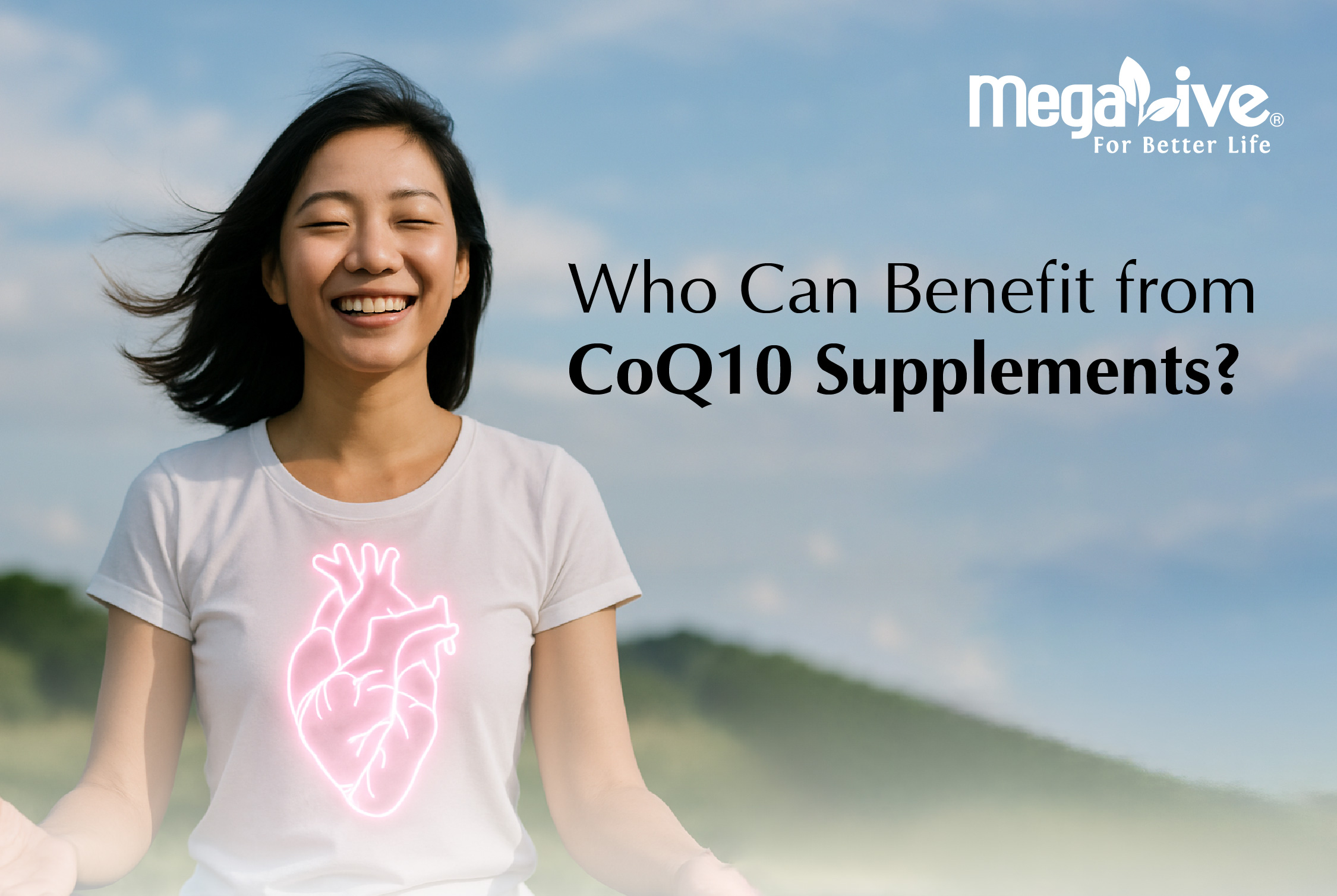Who Can Benefit from CoQ10 Supplements?

Coenzyme Q10 (CoQ10) is a naturally occurring compound in our bodies that plays a vital role in energy production and heart health. While we all produce CoQ10, certain groups of people may benefit from supplementation due to lower natural levels or higher demands.
1. Older Adults
Our bodies’ natural CoQ10 production begins to decline after our 30s and 40s. This decrease can affect energy metabolism and the heart’s ability to function at its best. Supplementation helps replenish these reduced levels, supporting vitality, circulation, and overall cardiovascular wellness as we age. [1]
2. People Taking Cholesterol-Lowering Drugs
Cholesterol-lowering drugs such as statins medications block part of the cholesterol production pathway, which also affects the pathway that produces CoQ10. This can lead to fatigue, muscle aches, or weakness. Supplementing with CoQ10 helps restore the body’s supply, potentially reducing discomfort and improving energy. [2]
3. Individuals Seeking to Support Heart Health
For those with cardiovascular concerns such as reduced heart function, hypertension, or angina, CoQ10 supports healthy energy production in heart cells and helps maintain proper blood vessel function. Under medical guidance, it can complement other treatments for better cardiovascular performance. [3]
4. People with High Energy Demands or Fatigue Issues
CoQ10 is a key component in the mitochondria, the “powerhouses” of our cells, where energy (ATP) is produced. Those with intense physical activity or chronic fatigue may benefit from extra CoQ10 to sustain energy output, improve stamina, and support quicker recovery. [4]
Whether you are aiming to maintain heart health, counteract the side effects of certain medications, or boost your energy, CoQ10 can be a valuable ally. Always consult a healthcare professional before starting any supplement, especially if you are on medication or managing a health condition.
Reference:
-
Rabanal-Ruiz, Y., Llanos-González, E., & Alcain, F. J. (2021). The use of coenzyme Q10 in cardiovascular diseases. https://pmc.ncbi.nlm.nih.gov/articles/PMC8151454/#:~:text=CoQ10%20distribution%20is%20not%20uniform,the%20NO%20levels%20for%20vasodilation.
-
Fletcher, J. (2023, December 14). CoQ10 and statins: Connection, side effects, and more. Medical News Today. https://www.medicalnewstoday.com/articles/coq10-and-statins#definitions
-
Coenzyme Q10 – StatPearls. (2023). In StatPearls. StatPearls Publishing. Retrieved August 14, 2025, from https://www.ncbi.nlm.nih.gov/books/NBK531491/ ncbi.nlm.nih.gov




